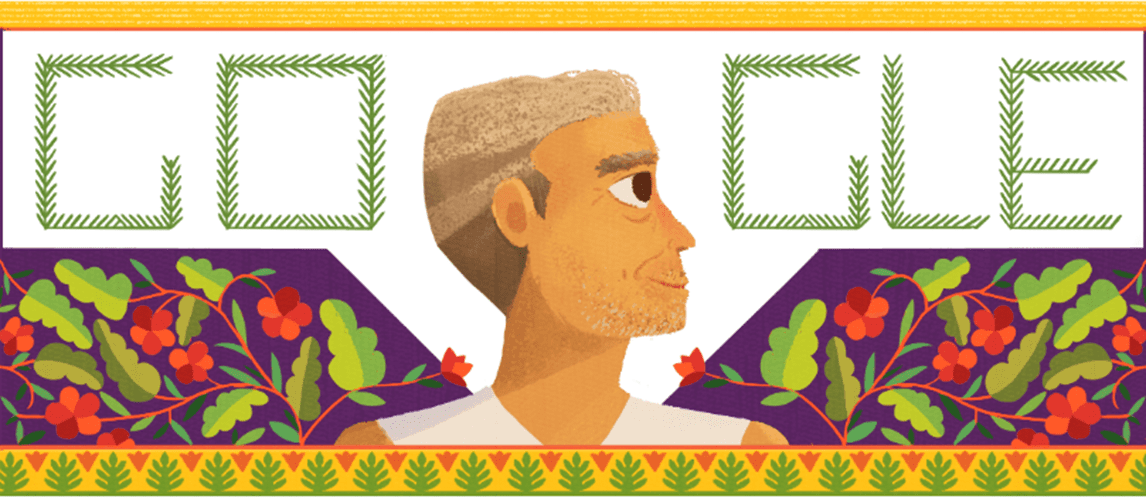Baba Amte: The Force Behind the Rehabilitation of People with Leprosy

Image Courtesy: https://www.google.com/doodles/baba-amtes-104th-birthday
Baba Amte (26 December 1914 – 9 February 2008) was an Indian social worker and social activist known particularly for his work for the rehabilitation and empowerment of people suffering from leprosy.
Life and Career
He was born on 26 December 1914 in Maharashtra. His father, Devidas Amte, was a British government officer working for the district administration and revenue collection departments. Trained in the law, he developed a successful legal practice in Wardha. He soon became involved in the Indian independence movement from the British Raj and, in 1942, began working as a defence lawyer for Indian leaders imprisoned by the British for their involvement in the Quit India movement. He spent some time at Sevagram, at the ashram started by Mahatma Gandhi, and became a follower of Gandhism.
Amte’s life was changed forever when he encountered a man suffering from leprosy. The sight of the man’s decaying body filled him with overwhelming fear. Confronting that fear, Amte identified the state of “mental leprosy” that allowed people to feel apathetic in the face of this dreaded affliction. He said that the most frightening disease is not losing one’s limbs but losing one’s strength to feel kindness and compassion.
Dedicating his life to the cause, Amte defied the social stigmas faced by leprosy patients by injecting himself with bacilli to prove that the disease was not highly contagious. in 1949 he established Anandwan—meaning “Forest of Bliss”—a self-sufficient village and rehabilitation center for leprosy patients. A strong believer in national unity, Amte launched the first Knit India March in 1985. At age 72, he walked from Kanyakumari to Kashmir, a distance of more than 3,000 miles with the simple purpose of inspiring unity in India. In a time of national strife, Amte was accompanied by 100 men and 16 women, all under the age of 35. He organized a second march three years later, traveling over 1800 miles from Assam to Gujarat. Amte died at Anandwan on 9 February 2008 in Maharashtra of age-related illnesses.
Award and Legacy
His tireless work left numerous legacies. In addition, he received numerous awards. In 1971, the Padma Shri Award was conferred upon him. He won the United Nations Prize in the Field of Human Rights in 1988 and the Gandhi Peace Prize in 1999. Amte followed Gandhi’s way of life and led a spartan life. He wore khadi clothes made from the looms at Anandwan. He believed in Gandhi’s concept of a self-sufficient village industry that empowers seemingly helpless people, and successfully brought his ideas into practice at Anandwan. Using non-violent means, he played an important role in the struggle for the independence of India.
On 26 December 2018, a Google Doodle was created to celebrate Baba Amte’s 104th Birthday.
Observer Voice is the one stop site for National, International news, Sports, Editor’s Choice, Art/culture contents, Quotes and much more. We also cover historical contents. Historical contents includes World History, Indian History, and what happened today. The website also covers Entertainment across the India and World.

